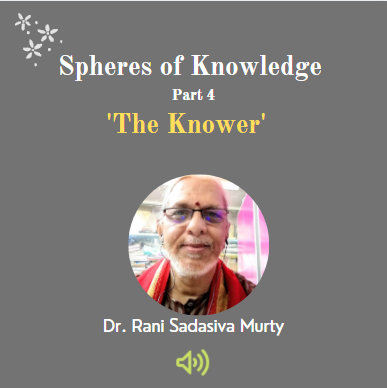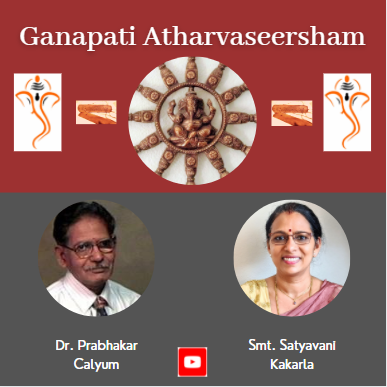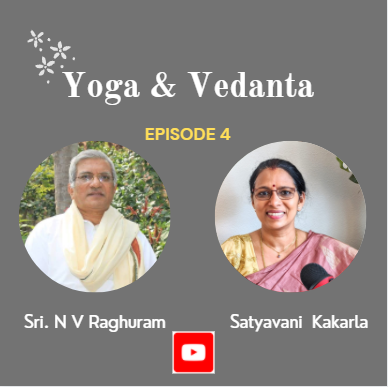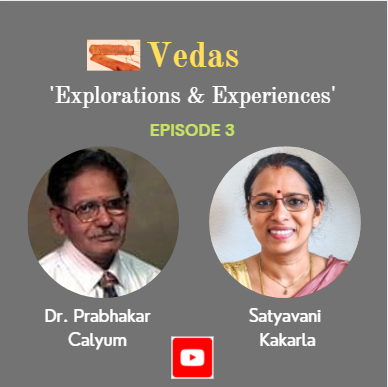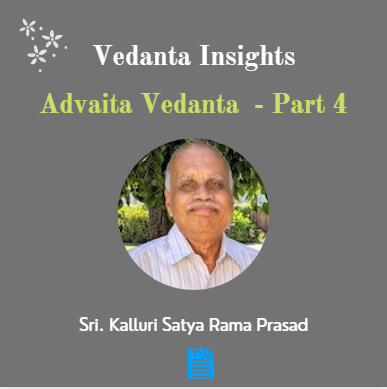In the process of acquiring knowledge the role of the knower is very important. The acquirer of knowledge is also called knower. There are many responsibilities for a knower, accordingly he is called with many names. After acquiring knowledge, he has to retain it in the best part of storage called Smriti. Hence, he is known as a knowledge retainer or a good memorizer. In the process of acquiring knowledge one may be a pursuant or seeker or one who is thirsty after knowledge.
‘Atharva’ means pain-free; ‘Seersha’ means prime, the most important. The most important vidya/knowledge of all Vidyas that gives all round success, all round happiness, removes all sorts of obstacles, and is beneficial in all ways is the Ganesha Vidya – “ Ganesha Aatharvaseersham.”
On reciting “Ganapati Atharvaseesrham,” one is blessed and receives and dwells in pure happiness – ‘Anandaanubhava.’
In the previous episode, Raghuram Garu brought insights of Yoga through Vedanta. In this episode, he will be taking us on a journey of Yoga in relation to the Puranas and Itihasas, taking a glimpse into the history of Yogic practice.
In this episode Sri. Prabhakar garu is explaining Vedic Heritage and Tradition.
Veda-s knowledge has been attractive to many from times immemorial. Tradition is a flow, it is a long flowing river of knowledge. Veda is knowledge, it is “Sampradaaya/m,” “Pradaana,” it means to give away to people, in a proper manner given to us by ‘Rishis’, or ‘pashyakas.’
(continued from previous post…)
A glossary to understand the basic and most common terms to enable better understanding of Vedanta texts; this will help seekers of knowledge to be well equipped to understand deeper meanings of the texts and their journey of knowing the Self.
